Biopole Bets On Patented Bio-Based Products To Disrupt The Tyre, Rubber And Automotive Industry
- By Nilesh Wadhwa
- August 19, 2025
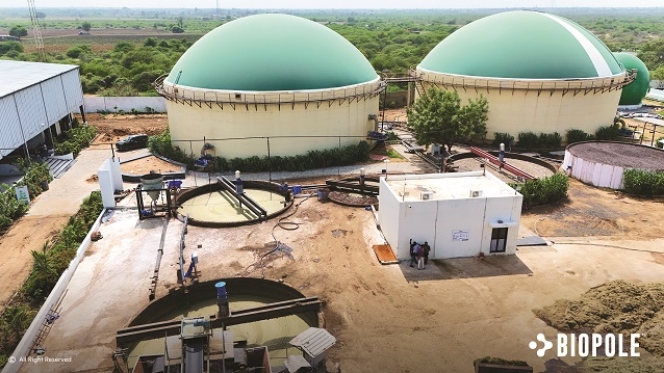
Mumbai-based start-up looks to make tyres green and clean, all the while enhancing farmers’ income by converting waste cotton byproducts to biodegradable products for the rubber industry.
In a world steadily transitioning towards sustainable and environmentally conscious solutions, Indian startup Biopole is poised to revolutionise the tyre, rubber and broader automotive materials space with a breakthrough innovation that merges agritech, cleantech and chemical engineering. The company has introduced Biozone 200, a high-performance bio-based antiozonant that prevents rubber products from cracking due to ozone exposure. It is generally used in the rubber and tyre industry. On the other hand, Biovive 300 is a bio-based antioxidant that protects rubber and polymer products from oxidative degradation used in the rubber and tyre industry.
In contrast to traditionally sourced materials from petrochemical derivatives, these additives are made using sustainably sourced materials that play a crucial role in improving the durability and life of rubber products, including tyres, hoses, belts, seals, plastic and even footwear soles. The company’s new offering is derived from agricultural waste – specifically, cotton stalks.
FROM AGRICULTURAL WASTE TO HIGH-VALUE ADDITIVE
In an interaction with Tyre Trends, Mehul Patel, Technical Director, Biopole, explained the development story: “What is Biopole? We provide bio-based antioxidants and antiozonants made from plants, more specifically cotton stalks, which are agricultural waste in India. After cotton is plucked, the stem or stalk is left behind, often burnt like stubble in North India. Instead of that, we extract useful chemicals from it to manufacture our solutions.”
Interestingly, while the young start-up was started just a couple of months ago, it has already established its first manufacturing unit in Dudhapur, about 120 km north of Ahmedabad, in the heart of Gujarat’s cotton belt. It currently has an annual production capacity of 4,500 metric tonnes, with Biopole sourcing raw material from nearly 1,000 farmers across a 24-square-kilometre region.
 “For these farmers, it’s waste, but for us, it’s the beginning of a high-value, eco-friendly product. And we pay them for it, so it’s a win-win,” he shared.
“For these farmers, it’s waste, but for us, it’s the beginning of a high-value, eco-friendly product. And we pay them for it, so it’s a win-win,” he shared.
The company has invested INR 200-250 million over the past eight years to perfect the material and bring it to commercial scale. “More than money, it’s the time that was crucial. It took us eight years to reach a stage where we could modify the compound to be usable as a technical replacement for existing antioxidants and antiozonants,” averred Patel.
Antioxidants and antiozonants are indispensable for the rubber industry. They delay degradation caused by oxidation and ozone exposure, improving product longevity. However, their petrochemical origins are increasingly problematic in a market where regulatory and environmental considerations are paramount.
“Our product is REACH-compliant (European Union’s regulations for Registration, Evaluation, Authorisation and Restriction of Chemicals), ROHS-certified (Restriction of Hazardous Substances) and California Proposition 65 compliant. This is especially critical for Indian manufacturers looking to export to Europe and the US, where chemicals like 6PPD and TDQ (Trimethyl Dihydroquinoline), which are still widely used in India, are banned,” explained Patel.
Interestingly, giving an example of how Biopole is already acting as a gamechanger in the rubber industry, Patel shared that its product has already enabled one Kanpur-based footwear manufacturer to regain access to export markets after switching to Biopole’s solution.
“They were unable to export because of regulatory issues tied to traditional chemicals. After switching to our material and clearing lab tests, they are back in business and expanding their footprint to global markets,” Patel noted.
COST-EFFECTIVE SUSTAINABILITY
It is no secret that while that the topic of sustainability has been actively pursued, for any businesses to simply switch sourcing from traditional suppliers to alternative eco-friendly materials also needs to make economic sense.
This is exactly one of the USP propositions for Biopole’s antioxidants and antiozonants solution.
Cost, often a barrier to adoption in India, has been neutralised by Biopole’s approach. “While European companies are willing to pay a premium for sustainable products, Indian customers ask about price first. But our product is priced competitively. The usage level is very small, and even if our additive is slightly more expensive than traditional options, the overall impact on the rubber compound is just about INR 0.10 per kg,” said Patel.
Giving the instance of carbon black, Patel stated, “Take carbon black, for example. Its prices fluctuate between INR 95 and INR 120 per kg, which impacts the compound price by INR 0.25 to 0.40 per kilo. In our case, the delta is much smaller and we offer a sustainability advantage.”
TYRE INDUSTRY
Given that India’s tyre industry is a high-volume, slow-approval segment, Biopole has made a strategic decision to first focus on non-tyre rubber product manufacturers.
“Tyre companies typically take three to five years to approve a new additive. They also require volumes of around 150 tonnes per month. That would overwhelm our current capacity. So we are currently targeting non-tyre applications, where monthly usage is around 1-2 tonnes per customer. This allows us to onboard multiple customers and scale gradually,” he said.
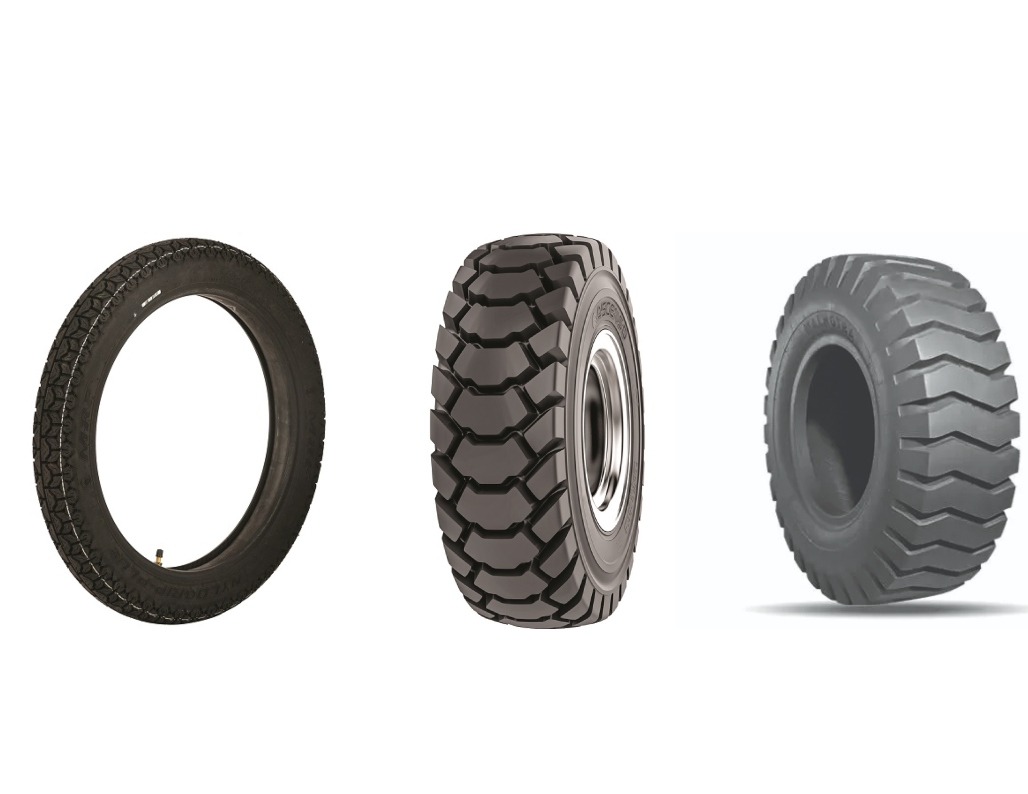
But Biopole is not actually ignoring the tyre segment. “We have already initiated pilot testing with some tyre manufacturers. If even two tyre companies approve our material, our entire capacity could be absorbed. That is why we are also preparing for future expansions,” he revealed.
Expansion is very much on the horizon. Patel estimates that scaling up to 9,000 tonnes can be done within six to eight months. “Once the market demands it, we are ready to expand our capacity at the Ahmedabad plant. The process is now streamlined,” he says.
EYEING GLOBAL MARKETS
While Gujarat was the logical choice for its facility due to its raw material ecosystem, Biopole is also exploring international expansion. “We met potential partners in the US and Ivory Coast at the American Chemical Society conference. They were extremely excited. In fact, one gentleman said, ‘Come to Ivory Coast, we’ll provide you land and cotton stalks’,” he shared.
Responding to a query if the company is open to partnerships and contract manufacturing with local stakeholders investing in infrastructure and sourcing. Patel shared that for Biopole nothing is off the tables: “We’re open to partnerships as long as it makes commercial sense.”
R&D
For Elastochemie, which has been traditionally a trading company, the journey for Biopole has been supported by a seven-member in-house R&D team, backed by collaborations with research institutions and external labs.
In addition to its current offerings, Patel revealed that Biopole “has already started working on two new products for the rubber industry, including retarders. We expect these to launch by FY2026.”
The company is also experimenting with product variations that would allow its additive to be used in coloured rubber and plastics. “Our material is naturally brown, which limits use in applications requiring bright or white colours. We are modifying it to work with those too,” he shared.
Though formally incorporated just five months ago in 2025, Biopole has global ambition and market-ready credibility. “Biopole will have its own balance sheet, and yes, it will be profitable as a standalone entity,” shared Patel.
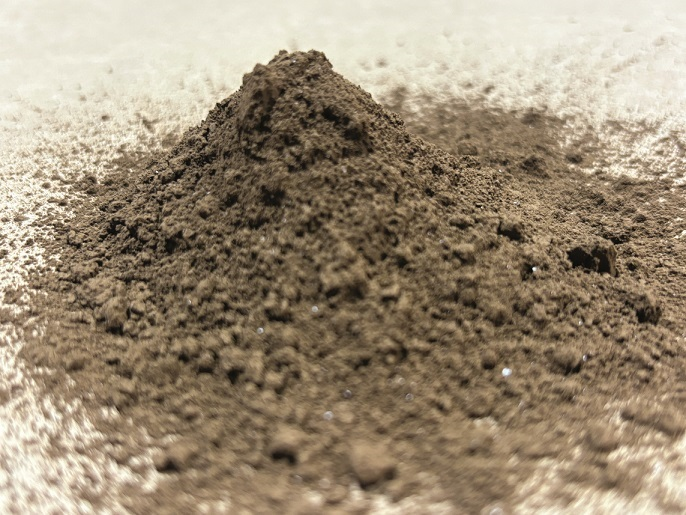
While Elastochemie remains a trading business, Biopole’s manufacturing arm marks a strategic leap. “Trading companies don’t usually do R&D. But we wanted to build something different. Something IP-led, something that creates real change,” he stated.
As a first-of-its-kind material globally, Biopole is claimed to have no direct competition at present. He gives the anecdote of being a zero-emission vehicle in a petrol and diesel market.
“We’re not worried about competition yet, because there’s no one else doing exactly this. Our product changes the game. And for our customers, it ticks multiple boxes – regulatory, sustainability and now, affordability too,” he shared.
GEOPOLITICAL SITUATION & FUTURE PLANS
Responding to a query on whether the company could be impacted due to the global geopolitical situation and trade disruptions, he shared that India is estimated as a whole consumes over two million tonnes of rubber annually, with tyre makers accounting for 57 percent of demand. The remaining 43 percent, or 850,000 tonnes, is used in non-tyre applications. “Even if we capture three percent of that, we are talking significant volumes,” Patel shared.
He also noted that Biopole is relatively insulated from global geopolitical shocks. “We are too small to be impacted by the global supply chain disruptions. Even if we don’t export, the Indian market alone is more than enough for our immediate growth trajectory,” he said.
That said, global expansion remains attractive for the premium it offers. “US and European companies approve faster and are willing to pay more for sustainability,” Patel added.
It is quite evident that Biopole’s under the wrap development of the bio-based antiozonant and antioxidant products over the last eight years has a strategic plan to support its future narrative.
Patel shared that in the near-to-mid-term the company aims to establish its product firmly in India, US and Europe market. The company will launch at least two new rubber additives including Bioguard 400, a bio-based scorch retarded that controls vulcanisation and prevents premature curing for the rubber and tyre industry. It will also develop versions of the additive suitable for coloured plastics and rubber applications. And finally, Biopole will further scale manufacturing capacity based on traction from tyre manufacturers.
In an industry often dominated by legacy chemicals and slow-moving incumbents, Biopole’s innovative approach may well be a tipping point.
“We are not just offering a product,” concluded Patel. “We are offering a shift in thinking. A biodegradable, sustainable, regulatory-compliant material that solves real industry pain points. That’s the future – and we’re building it from waste.”
Zeon And Visolis Sign Binding Term Sheet To Advance Bio-Isoprene And SAF Commercialisation
- By TT News
- February 16, 2026
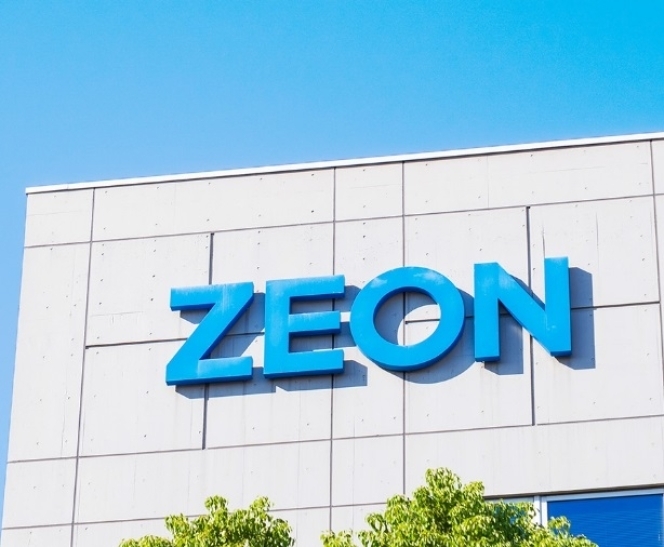
Zeon Corporation and Visolis Inc. have formalised their partnership by signing a binding term sheet, marking a pivotal advancement in the commercialisation of bio-based isoprene monomer and sustainable aviation fuel (SAF).
This collaboration, which now moves from technology verification towards project implementation, is built upon the progress made since their initial memorandum of understanding in March 2024 and the subsequent joint feasibility study announced in April 2025. Bio-based isoprene monomer serves as an essential component in the production of synthetic rubbers and various other materials, while SAF is increasingly recognised as a critical next-generation fuel for reducing carbon emissions within the aviation industry.
The newly established term sheet outlines a foundational agreement on the key elements required for a final investment decision. These include defining the business structure and the respective roles of each company, establishing technology and development strategies and advancing detailed engineering for the proposed production facility. Furthermore, the agreement covers the evaluation of potential sites, the process for engaging with suppliers, securing necessary regulatory approvals and planning the financing pathway.
The envisioned facility is set to commence commercial-scale output after successfully demonstrating mass production capabilities for biomass-based isoprene and SAF, utilising Visolis’ proprietary technology. Both companies are now committed to expediting the path to full-scale production and ensuring a steady supply of these sustainable products to the global market.
Zeon Backs Chemify To Accelerate Digital Chemistry Innovation
- By TT News
- February 12, 2026
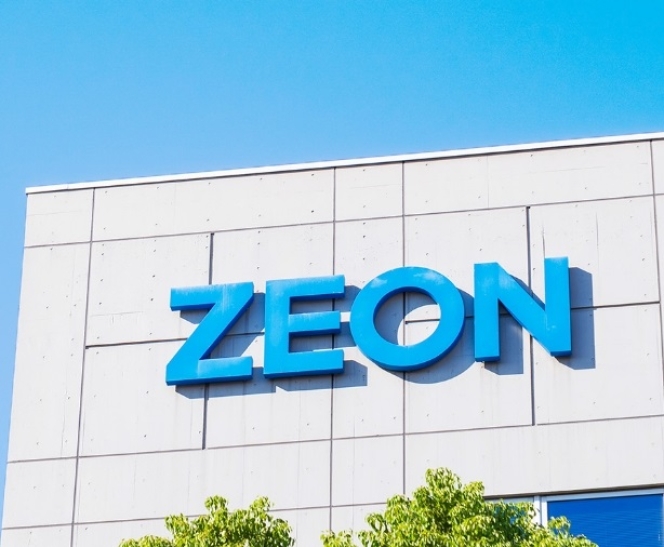
Zeon Corporation has deepened its commitment to digital chemistry through a strategic investment and partnership with Chemify Limited, secured via its corporate venture arm Zeon Ventures Inc. Chemify, a growth-stage UK enterprise, is reshaping molecular research by integrating digital tools with automated laboratory systems. Its proprietary Chemputation technology translates molecular targets into executable chemical code, which operates directly on robotic platforms to complete integrated Design–Make–Test–Analyze cycles without manual intervention. This closed-loop automation allows Chemify to explore previously inaccessible areas of chemical space while reducing the timeline from concept to synthesized compound by up to tenfold.
A cornerstone of Chemify’s capability is its recently inaugurated Chemifarm in Glasgow – one of the most sophisticated automated facilities in the world for molecular design and construction. The facility enables accelerated iteration and autonomous synthesis of novel small molecules, converting chemical code into tangible compounds with unprecedented efficiency. These advances are critical for developing functional, synthesisable molecules that can contribute solutions to urgent global issues spanning public health, energy efficiency and environmental protection.
Zeon has been at the forefront of adopting digital methodologies in chemical R&D, recognising their transformative potential from an early stage. This investment is positioned to strengthen Zeon’s internal digital chemistry efforts and catalyse the invention of novel materials capable of addressing complex societal needs. The move aligns with Zeon’s STAGE30 corporate strategy, which targets a rise in revenue contribution from four key growth sectors – Mobility, Healthcare and Life Sciences, Telecommunications and Green Transformation – to 48 percent by fiscal 2028. By backing pioneering enterprises and cultivating advanced materials, Zeon continues to advance its dual vision of a sustainable planet and a secure, progressive society.
- Rubber Board Of India
- Rubber Producers’ Societies
- Sulphur Dusting
- Powdery Mildew
- Rubber Plantations
- Rubber Board Subsidy
Rubber Board Announces Sulphur Dusting Subsidy For Rubber Producers
- By TT News
- February 09, 2026

The Rubber Board of India has announced the opening of an application window for financial aid for sulphur dusting to combat powdery mildew disease in rubber plantations for the year 2026. The scheme is open to all Rubber Producers’ Societies (RPS) operating in both traditional and non-traditional growing regions.
From 10 to 20 February 2026, eligible societies must submit their applications online through the 'ServicePlus' portal on the official Rubber Board website. Societies requiring help with the submission process are advised to contact their nearest Rubber Board regional office or field station, or to consult the board's website for further guidance.
French Recognition Of TPO Bolsters Pyrum's Circular Economy Model
- By TT News
- February 09, 2026
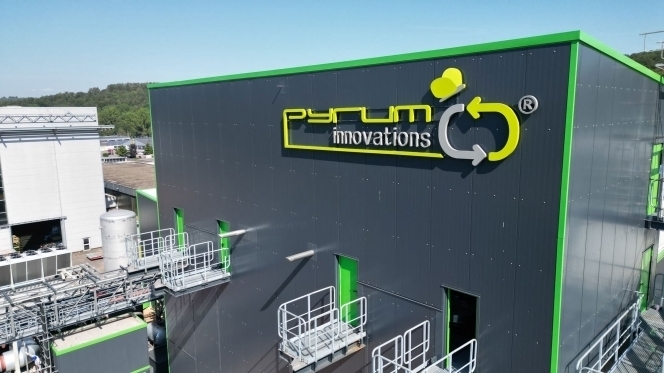
Pyrum Innovations AG has welcomed the official recognition by French authorities on 17 January 2026, which classifies tyre pyrolysis oil (TPO) as a legitimate raw material for the chemical sector. This pivotal regulatory milestone for pyrolysis oil derived from end-of-life tyres substantially enhances the product’s integration into established chemical value chains. It also provides greater predictability for future purchase and partnership frameworks, thereby accelerating the development of industrial material cycles.
For Pyrum, which processes scrap tyres through pyrolysis to recover pyrolysis oil, industrial carbon black and steel, this decision underscores the critical need for standardised and reliable regulatory conditions. Such clarity is fundamental for scaling investments, production volumes and supply chains, particularly as the chemical industry and circular economy converge. The establishment of clear product categories is essential to ramp up the market for high-quality recycled raw materials.
The company remains committed to tracking further developments in France and the wider European dialogue regarding the classification and application of recycled feedstocks. Pyrum’s overarching objective is to expand industrial-scale recycling solutions for scrap tyres. This regulatory progress directly supports the company’s mission to secure long-term, quality-assured supply agreements with partners across the chemical industry, thereby advancing a more sustainable and circular economic model.
Pascal Klein, CEO, Pyrum Innovations AG, said, “The decision in France is an important step for the industrial use of pyrolysis oil from waste tyres. It supports a trend that we are seeing in many markets, where the chemical industry is seeking reliable, technologically robust and clearly classified alternative raw materials.”







Comments (0)
ADD COMMENT